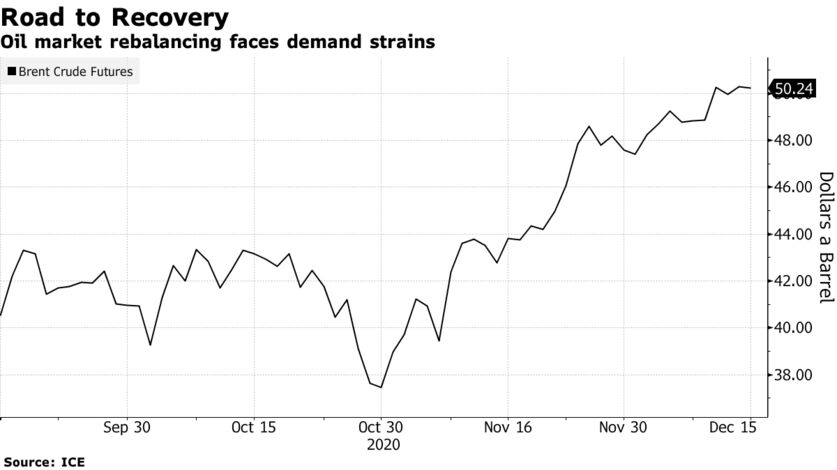The light at the end of the tunnel isn’t getting any closer for OPEC and allied oil-producing countries, as forecasts of the world’s need for their supplies next year are cut again.
The world’s three major oil agencies — the International Energy Agency, the U.S. Energy Information Administration and the Organization of Petroleum Exporting Countries — all reduced the outlook for global oil demand in 2021 in their latest monthly reports. With two of them also increasing their forecasts for non-OPEC crude production next year, the gap that needs to be filled with barrels from the OPEC countries continues to get smaller.
The most difficult period for the producer group will be the first half of the year, before vaccinations against the Covid-19 pandemic are sufficiently widespread to allow governments to lift restrictions on movement and gatherings that have had such a dramatic impact on people’s lives and on demand for oil in 2020.
In a normal year, the first quarter is typically the weakest for oil demand, and 2021 will still be far from normal. The usual early-year weakness will be compounded by the fact that, even in the affluent countries that have secured large quantities of the most advanced vaccines, the roll-out of inoculations will take time. Working-age people outside the key healthcare sector could be among the last to benefit, which may continue to dampen economic activity and energy demand.
In a normal year, the first quarter is typically the weakest for oil demand, and 2021 will still be far from normal. The usual early-year weakness will be compounded by the fact that, even in the affluent countries that have secured large quantities of the most advanced vaccines, the roll-out of inoculations will take time. Working-age people outside the key healthcare sector could be among the last to benefit, which may continue to dampen economic activity and energy demand.






